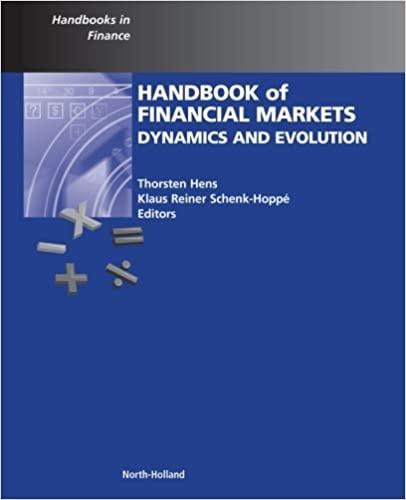Question
Jim makes a deposit of $13,100 in a bank account. The deposit is to earn interest compounded annually at the rate of 9 percent for
Jim makes a deposit of $13,100 in a bank account. The deposit is to earn interest compounded annually at the rate of 9 percent for seven years.
Required:
a. How much will Jim have on deposit at the end of seven years? (Hint: What is future value?)
Note: Do not round intermediate calculations and round your final answer to the nearest whole dollar amount.
b. Assuming the deposit earned a 12 percent rate of interest compounded quarterly, how much would he have at the end of seven years?
Note: Do not round intermediate calculations and round your final answer to the nearest whole dollar amount.
c1. What is the effective annual yield for alternative (a) where interest is compounded annually? (Hint: Consider the future value of each deposit after one year only.)
Note: Do not round intermediate calculations and round your final answer to 2 decimal places.
c2. What is the effective annual yield for alternative (b) where interest is compounded quarterly? (Hint: Consider the future value of each deposit after one year only.)
Note: Do not round intermediate calculations and round your final answer to 2 decimal places.
c3. Which alternative is better?
Step by Step Solution
There are 3 Steps involved in it
Step: 1

Get Instant Access to Expert-Tailored Solutions
See step-by-step solutions with expert insights and AI powered tools for academic success
Step: 2

Step: 3

Ace Your Homework with AI
Get the answers you need in no time with our AI-driven, step-by-step assistance
Get Started


